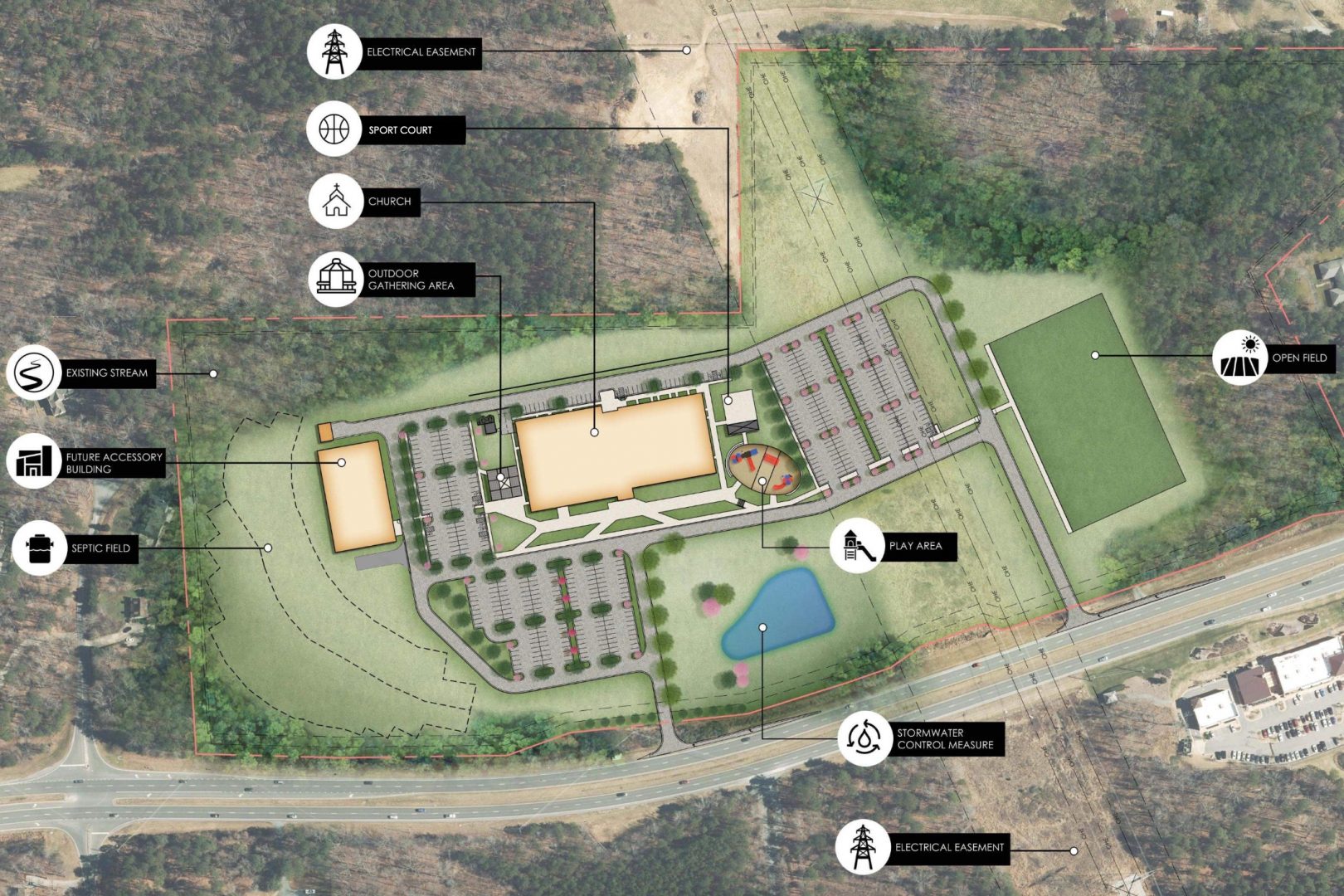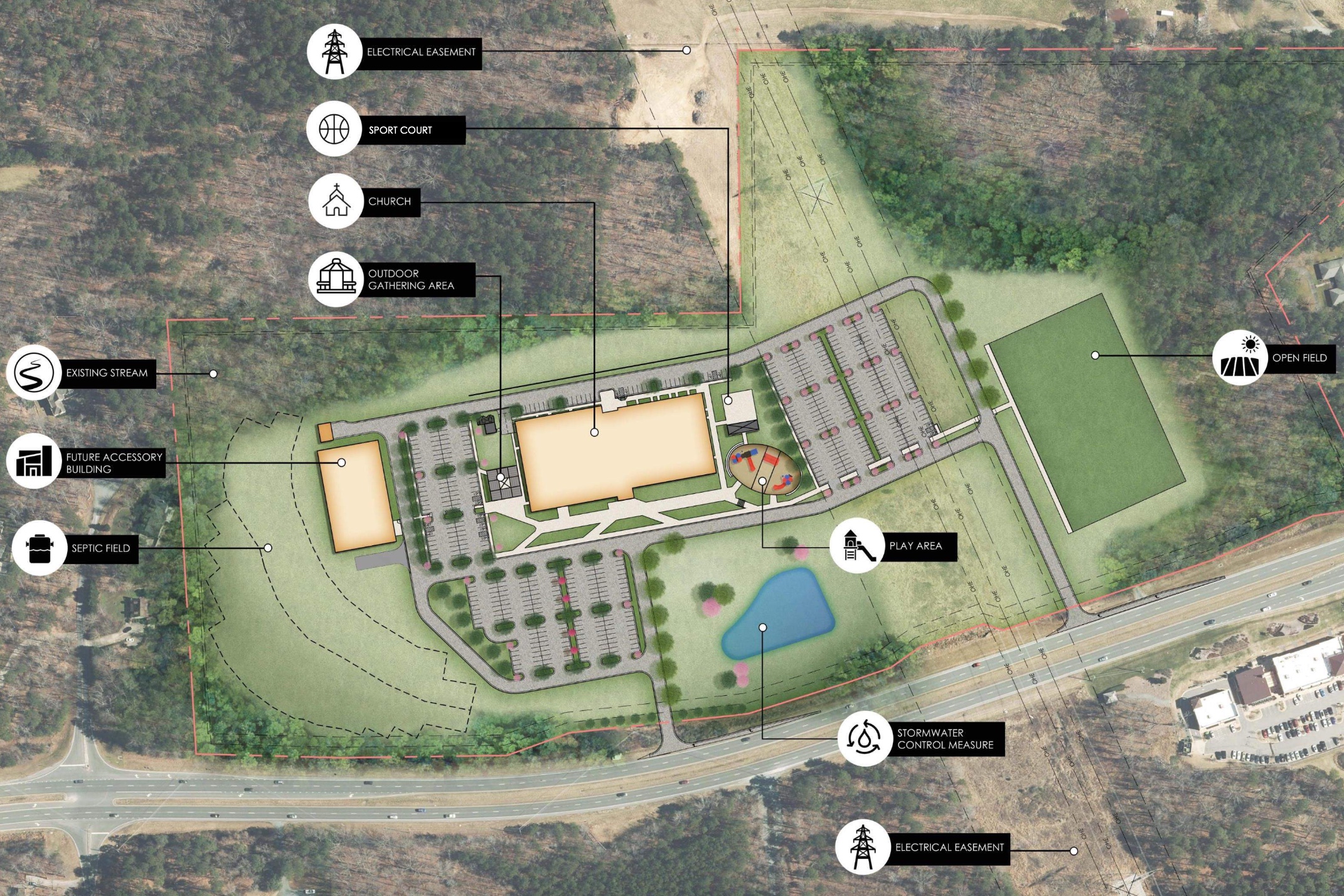
The site plan for The Summit Church’s proposed new campus in Chatham County, N.C., called for a two-story, 82,000 square-foot church. The county’s Board of Commissioners denied The Summit’s zoning request.
DURHAM, N.C. — A federal judge has granted a local county’s motion for an extension to respond to a lawsuit filed by The Summit Church last month that claims its zoning request to build a church facility was denied based on religious grounds.
An attorney for the Chatham County Board of Commissioners filed a motion in the U.S. Middle District Court of North Carolina on Thursday, March 6, asking for an additional 20 days to respond to the lawsuit. Magistrate Judge Joe L. Webster granted the motion on Friday, March 7, which was the original deadline for Chatham County officials to respond to The Summit Church’s complaint.
The county now has until March 27 to respond.
According to the motion, Chatham County’s legal counsel said “additional time is needed in order to properly review the Plaintiff’s Complaint, Motion and supporting documents and confer with the client and prepare an appropriate Response.” The filing also said, “This motion is filed in good faith for the reasons stated and not for purpose of delay.”
Chatham County’s attorney also “reached out” to The Summit Church’s legal counsel who indicated that the church “consents” to the motion, the filing said.
The Summit Church filed the lawsuit against the Chatham County Board of Commissioners on Feb. 14, two months after the commissioners voted unanimously in December 2024 to deny the church’s request to rezone three parcels of land totaling approximately 50 acres to build a permanent location for its nearby Chapel Hill campus, which currently meets in a local high school.
The Summit Church is a multisite congregation that has 13 campuses across the Triangle region of North Carolina. The church’s ministry strategy is to have a permanent facility for each of its campuses.
In denying the church’s rezoning request, the Chatham County’s Board of Commissioners said the request was not consistent with the county’s land conservation and development plan and would not provide diversity in tax revenue or high-quality jobs for the area.
However, attorneys for The Summit Church claim the decision violated provisions of the Religious Land Use and Institutionalized Persons Act (RLUIPA) of 2000, a federal law that protects individuals, houses of worship and other religious institutions from discrimination in zoning and landmarking laws.
The church’s lawsuit claims that the commissioners’ denial, along with the county’s land use regulations and policies, place a substantial burden on the church’s religious exercise, treat religious assemblies and institutions unequally, discriminate on the basis of religion, and place unreasonable limitations on religious assemblies, institutions and structures.
In 2022, the county approved a mixed-use, active-adult community to be built on the same property as The Summit Church’s proposed site, but those plans ultimately fell through.
The lawsuit seeks an injunction that would require the county to approve The Summit Church’s zoning request, as well as pay the church’s legal costs.

